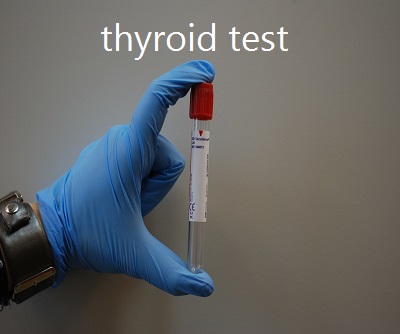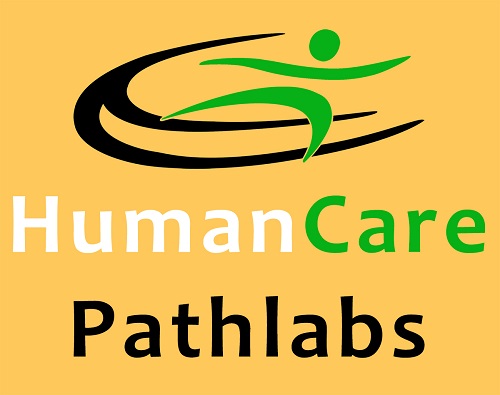Best Facilities Services At Your DoorStep
Thyroid Scan
MRP : INR 4400/-
Our Price : INR 3500/-
Nuclear Medicine Thyroid Scan
What is a nuclear medicine thyroid scan?
A nuclear medicine thyroid scan uses a radioactive medication (radiopharmaceutical) to take pictures or images of the thyroid gland. The radiopharmaceutical is injected into a vein, usually in the arm, and enters the thyroid gland from the circulating blood. It is detected by a special gamma camera that takes images and provides information about the function and structure of the thyroid gland. See InsideRadiology: Nuclear Medicine for more detailed information about the processes used.

Why would my doctor refer me to have this procedure?
Your doctor may refer you for a nuclear medicine thyroid scan if it is believed parts of your thyroid gland are not working properly and to see whether the thyroid gland is overactive (hyperthyroidism). It can also help in distinguishing between benign (non-cancerous) and malignant (cancerous) thyroid nodules or lumps.
How do I prepare for a nuclear medicine thyroid scan?
Concentration of the radiopharmaceutical in the thyroid gland is affected by several factors. The most important of all is iodine, which will prevent the radiopharmaceutical entering the gland, resulting in poor scan images. If you have had a computed tomography (CT) scan requiring intravenous (IV) iodine contrast medium, please schedule your thyroid scan at least 6–8 weeks after the CT scan. High iodine-containing food, health supplements and medications should also be avoided before the scan. If you are unsure whether you are taking anything that may affect the scan, please talk to your doctor or the nuclear medicine facility.
It is important that you let staff at the hospital or nuclear medicine facility where you are having the scan done know if you are (or think you could be) pregnant or if you are breast-feeding.
This study may not be suitable for pregnant women because of the radiation dose to the growing foetus. Please discuss this with your doctor.
Women who are breast-feeding and people who are the primary or sole carer for small children may need to make special preparations after the test to stop breast-feeding for a short time and avoid close contact with young children. This is due to the small amount of radioactivity your body may release for a short time after the test. Your doctor or the nuclear medicine facility will instruct you on how to manage breast-feeding before and after the scan.
What happens during a thyroid scan?
You will be given an injection of a radiopharmaceutical called sodium pertechnetate. This will concentrate in the thyroid gland. After the injection, you will have a 15 to 20-minute wait before having the scan to allow the radiopharmaceutical to be taken up by the thyroid gland.
When you have the thyroid scan, you will be lying down on a bed and the camera will be positioned very close over your head, but will not touch you. Several images are taken, lasting about 5 minutes each, and the camera may move slightly during this time. It is important you lie very still and try not to swallow during this time, as movement will blur the pictures. Please speak to the staff before or during your scan if you find this difficult. A nuclear medicine specialist (a specialist doctor) may wish to examine your neck, to feel for any thyroid nodules or gland enlargement.
Are there any after effects of a thyroid scan
There are no after effects of a thyroid scan and you will not feel any different.
If you are breast-feeding or caring for young children, see the ‘How do I prepare’ section for more information about special precautions you may need to take.
How long does a thyroid scan take?
In general, the scan will take about 40 minutes in total. You will need to wait 15–20 minutes after the injection, and then there will be 15 minutes of scanning time. A report will be sent to your referring doctor.
What are the risks of a thyroid scan?
There are no known associated risks. The dose of radiation you will be receiving is relatively small.
What are the benefits of a thyroid scan?
The thyroid helps maintain many different functions of the body by processing and adjusting the levels of certain hormones. A thyroid scan is carried out so doctors can determine which parts of the thyroid gland are working properly and whether the thyroid gland is overactive (hyperthyroidism) or underactive (hypothyroidism). It may also help in distinguishing between benign (non-cancerous) and malignant (cancerous) thyroid nodules. A thyroid scan also gives some information about the size and shape of the thyroid gland.
Who does the thyroid scan?
A nuclear medicine technologist will give the injection of the radiopharmaceutical, carry out the scan and process the images. A nuclear medicine specialist doctor will review and interpret the images together with your medical history and provide a report for your referring doctor. See Nuclear Medicine for more details about these health professionals.
Where is a thyroid scan done?
A thyroid scan is carried out in the nuclear medicine department of a hospital or at a private clinic.
When can I expect the results of my thyroid scan?
The time that it takes your doctor to receive a written report on the test will vary, depending on:
- the urgency with which the result is needed;
- whether more information is needed from your doctor before the examination can be interpreted by the radiologist or nuclear medicine physician (specialist doctors);
- whether you have had previous X-rays or other medical imaging that needs to be compared with this new scan (this is commonly the case if you have a disease or condition that is being followed to assess your progress);
- how the report is conveyed from the hospital or radiology facility to your doctor (i.e. phone, email, fax or mail)
